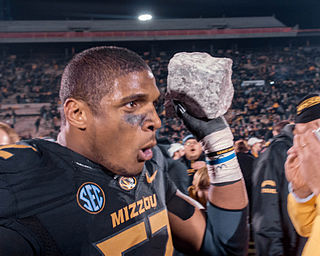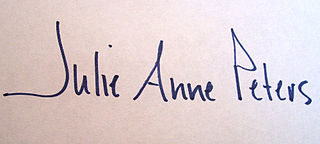A Quote by Sara Paretsky
She knew the intensity of adolescence, and knew no cure for it except growing up. And then one has age and experience, and mourns the loss of intensity. Maybe it's why musicians and mathmaticians are said to peak young-poetry needs the fire of an unbounded universe.
Related Quotes
People said things they didn't mean all the time. Everybody else in the world seemed able to factor it in. But not Lena. Why did she believe the things people said? Why did she cling to them so literally? Why did she think she knew people when she clearly didn't? Why did she imagine that the world didn't change, when it did? Maybe she didn't change. She believed what people said and she stayed the same." (Lena, 211)
Odd, she thought, how intensely you knew a person, or thought you did, when you were in love - soaked, drenched in love - only to discover later that perhaps you didn't know that person quite as well as you had imagined. Or weren't quite as well known as you had hoped to be. In the beginning, a lover drank in every word and gesture and then tried to hold on to that intensity for as long as possible. But inevitable, if two people were together long enough, that intensity had to wane.
All teenagers knew this was true. The process of growing up was nothing more than figuring out what doors hadn't yet been slammed in your face. For years, parents tell you that you can be anything, have anything, do anything. That was why she'd been so eager to grow up-until she got to adolescence and hit a big fat wall ofreality. As it turned out, she couldn't have anything she wanted. You didn't get to be pretty or smart or popular just because you wanted it. You didn't control your own destiny, you were too busy trying to fit in.
If they were real, then maybe the world was big enough to have magic in it. And if there was magic — even bad magic, and Zach knew it was more likely that there was bad magic than any good kind — then maybe not everyone had to have a story like his father's, a story like the kind all the adults he knew told, one about giving up and growing bitter.
He stepped toward her, and her heart just ached from it. His face was so handsome, and so dear, and so perfectly wonderfully familiar. She knew the slope of his cheeks, and the exact shade of his eys, brownish near the iris, melting into green at the edge. And his mouth-she knew that mouth, the look of it, the feel of it. She knew his smile, and she knew his frown, and she knew- she knew far to much.
All children, except one, grow up. They soon know that they will grow up, and the way Wendy knew was this. One day when she was two years old she was playing in a garden, and she plucked another flower and ran with it to her mother. I suppose she must have looked rather delightful, for Mrs Darling put her hand to her heart and cried, ‘Oh, why can’t you remain like this for ever!’ This was all that passed between them on the subject, but henceforth Wendy knew that she must grow up. You always know after you are two. Two is the beginning of the end.
I did not write it [Coming of Age in Samoa] as a popular book, but only with the hope that it would be intelligible to those who might make the best use of its theme, that adolescence need not be the time of stress and strain which Western society made it; that growing up could be freer and easier and less complicated; and also that there were prices to pay for the very lack of complication I found in Samoa - less intensity, less individuality, less involvement with life.
What was I afraid of, exactly? What other people would think? I guess, a little. But that wasn't what was stopping me from acting on my feelings. It was the intensity of them. The desire for her. I knew if I gave into it, I'd have to surrender myself completely. I'd lose all control. Everything I knew, everything I was, the walls I'd built up to protect myself all these years would come crashing down. I might get lost in the rubble. Yet, she made me feel alive in a way I'd only ever imagined I could feel. Bells, whistles, music.


































